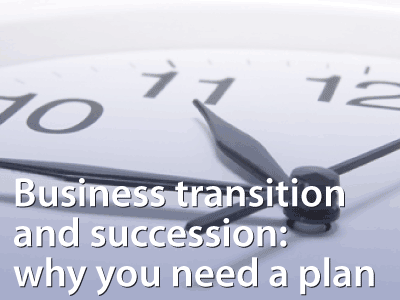
Businesses start with the best of intentions. While beginnings are an exciting time, a strong business foundation needs to include planning for multiple future scenarios and potential “what-ifs,” including business transition and succession. Unfortunately, many business owners don’t plan for their end game.
Relationships and business transitions
You build relationships with employees, clients, customers, vendors and your community over many years. These relationships are what make your business successful whether you are in construction, professional services or manufacturing. Imagine, for example, the (angry) shock if you sell or shut down your business without telling clients you have worked with for many years. A successful business transition or succession plan is well thought out, and it helps your employees, customers or clients ease into a changeover. Change can be difficult for people and you do not want anyone to lose confidence in the business
Employees are your core strength
Business transition and succession is not just about your relationship with your clients but also your employees. How do you get your team to be on board with your succession plan?
Unless your team is engaged in the process, you could lose key employees when new business owners take over. In many industries, your company will lose significant value if the employees who helped you build it disappear.
Ask yourself if there’s someone on your team you could groom as a successor. It can be reassuring to employees and to clients if they already know and have worked with your successor for years. An identified successor and a succession plan are key factors in aligning your perception of what your business is worth with that of new owners/investors or lenders.
Why do I need a plan? I’m never going to retire
Having a business transition or succession plan is about much more than your retirement. In business as in life, you can expect the unexpected. In business you want to have a clear set of standard operating procedures or systems in place for unexpected and surprising situations. What if you suddenly needed surgery and would be out of work for weeks? Who will cover for you? You need the essential work of the business to be able to continue successfully without your availability.
Making a plan
If you have owned a business for many years but haven’t yet created your plan, you are not alone. Even financial planners, who should know better, have a hard time thinking about the future of their business. According to Money.USNews.com “nearly 90% of financial advisors lack a formal succession plan”. While this may make you feel better about your own planning (or lack of), it hopefully will also motivate you to ask yourself these tough questions.
- How long do I expect to be involved with my business?
- Am I thinking of selling in the long term?
- What are my goals for the future of the business?
- Am I in a family business? Who will take over if something happens to the current person in charge? How will other family members feel about that?
- Do I want the business to continue once I decide to retire? Who is going to succeed me?
If you are unsure where to start that is perfectly normal. Set aside some time every day or every week in your calendar so that you can focus on working on a plan. It doesn’t need to be perfect; it just needs to be a start. Think through the issues that you want to plan for. An attorney or financial planner can help you with options for how to accomplish what you’re after.
Plans change
Once you have your transition and succession plan, consider it a living document and go back to it as your business grows and changes.
If you are the head of a family business, your first-born may or may not be the best person to run the business after you. Family businesses often do not last beyond the second generation because assumptions are made about succession. If you do not have a family member appropriate as a successor, consider hiring a person outside the family to take over certain operations.
Likewise, if your business has co-owners, have you considered how to protect each other if a long-term disability strikes one of the owners, or even death? It should be clear to each owner (and their extended families), how and when business management and succession will transfer in such circumstances.
Having an end game is just the beginning.
Some business owners worry that with a succession plan, they will lose control of what they have built. Not true. Having a well thought out and actionable transition plan can protect you, your clients, your employees, and your business value.
Helpful Resources
https://www.sba.gov/content/plan-your-exit
Heidi Clute, CFP® is co-owner of Clute Wealth Management in South Burlington, VT and Plattsburgh, NY, an independent firm and registered investment advisor that provides strategic financial and investment planning for individuals and small businesses in the Lake Champlain Valley region. The opinions voiced in this material are for general information only and not intended to provide specific advice or recommendations. For a list of states in which we are registered to do business, please visit www.clutewealthmanagement.com.


